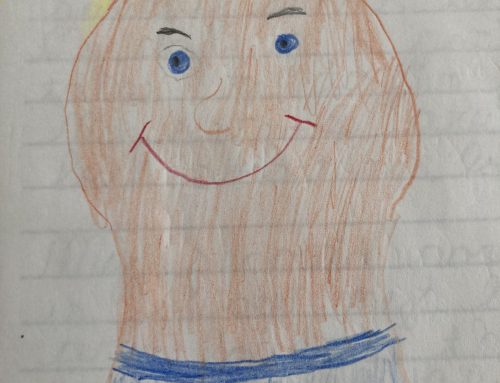David and Goliath. The original underdog story. The ultimate long shot. Against all odds. A thousand-to-one. His chances were slim and none and slim just left town. This is a story that is centuries old. It’s told over and over. The names change but the idea is the same. Here are just a few popular movies based on this story:
- Hoosiers
- Back to the Future
- Diehard
- Happy Gilmore
- Star Wars
- Karate Kid
- Dodgeball
As great as all of those underdog stories are, they pale in comparison to the original. If you Google the top story in the Bible, this one is second only to the crucifixion of Jesus.
History revisited
The story of David and Goliath is generally understood as a battle won by an underdog who, by all expectations, should not have won. He was young, unequipped, inexperienced, but he won despite all of these drawbacks. That’s how we understand this story. What would you say to me if I told you that much of what we understand about the story of David and Goliath is wrong? David wasn’t the underdog. David wasn’t ill- equipped. David was uniquely set up for success and if you were to lay odds based on all of the facts, David would be the odds-on favorite in every sports book in Vegas.
In Malcolm Gladwell’s book David and Goliath, he makes some observations that, based on the facts of the story, seem to better explain the story of David and Goliath. On first glance Goliath looks like the overwhelming favorite. He’s bigger and stronger than David. He has full body armor. He’s got multiple weapons. David is just a punk in his street clothes with a rock and a sling. Seems like a mismatch of epic proportions. But David actually had the advantage in this situation. To understand that you need to understand how battles were waged in ancient times. As Gladwell explains it, there were three different parts of the ancient army:
“The first was cavalry – armed men on horseback or in chariots. The second was infantry – foot soldiers wearing armor and carrying swords and shields. The third were projectile warriors, or what today would be called artillery: archers and most importantly, slingers.”
Slingers had been a part of the Israeli army for at least a century by the time this battle took place. Look with me at Judges 20:16, This verse is describing the army of the Benjamites:
Among all these soldiers there were seven hundred select troops who were left-handed, each of whom could sling a stone at a hair and not miss. —Judges 20:16
Slingers
Slingers were a common part of an ancient army. The Romans even had a special set of tongs made just to remove stones that had been embedded in a soldier’s body. Let that sink in for a moment. Get it? Sink in. Sorry; I couldn’t resist. Tests have been done on the power of a stone that has been slung by a sling and a conservative estimate of the speed of a stone slung by a sling is 76 mph, although some say it can go twice that speed.
David was a skilled slinger. He was a shepherd. All he did all day, every day, was watch sheep that means that he had a lot of free time in a field filled with rocks. My guess is that he practiced with that sling all day. You put a boy together with a weapon and give him free time, he’s going to use it. Why? Well for one thing, he didn’t have an iPhone. For another, boys chuck rocks; that’s what they do. If you have a son, you know this is a true statement. Boys will find rocks anywhere and when they find them they will throw them. Boys are just drawn to projectiles.
Goliath wanted to engage David in hand to hand combat but David was smarter than that. He knew he could fight Goliath without having to go near the sword and spear. From a hundred feet David could launch a rock that would give Goliath under a second to respond. He had practiced all day, every day. He had defeated lions and bears. One good shot and he could take out Goliath. And that’s just what happened.
The historian Robert Dohrenwend put it like this:
“Goliath had as much chance against David as any Bronze Age warrior with a sword would have had against an [opponent] armed with a .45 automatic pistol.”
Who’s Your Goliath?
David and Goliath’s story is about confronting giants. When I say giants I mean powerful opponents who, if we are not careful, can defeat us. These giants have names like disability, misfortune, oppression, illness, divorce, unemployment.
Your David versus Goliath moment may happen between you and your company, or you and spouse, even you and your children. Heck, your Goliath might be 3 feet tall. You’re Goliath might be rude and nasty or unfaithful and ungrateful. You might not be facing one now, but the time will come when you are sent to the front lines and all you have is a stone and a sling.
Sounds scary, but that moment could be your finest. As Malcolm Gladwell says in his book:
“The act of facing overwhelming odds produces greatness and beauty.”
What about you? I’m guessing you’re not going to have the opportunity to go head-to-head with a nine footer, but at some point you and I will face powerful opponents. If we let God turn our weaknesses into strengths, like he did with David, then we can not only defeat our giants, but that struggle can produce greatness and beauty in us.
Let God Turn Your Weakness into Strengths
David had several perceived weaknesses:
- He was a shepherd.
- He was small.
- He didn’t have armor.
These are the reasons why King Saul and even David’s own father and brothers and probably most of the people on the sidelines doubted him. But those weaknesses actually turned out to be strengths:
Yes, he was a shepherd, but that boring job gave him all kinds of free time to practice with his sling. That job put him face-to-face with lions and bears and other powerful opponents. Sure he was small, but he was fast. He didn’t have armor which allowed him to move quickly. His perceived weaknesses were actually strengths.
Malcolm Gladwell gives this insight “The fact of being an underdog can change people in ways that we often fail to appreciate: it can open doors and create opportunities and educate and enlighten and make possible what might otherwise have seemed unthinkable.”
Malcolm Gladwell said it recently. God has been saying it for centuries. That’s a pretty good quote. Here is a better one:
(God) said to me, “My grace is sufficient for you, for my power is made perfect in weakness.” Therefore I will boast all the more gladly about my weaknesses, so that Christ’s power may rest on me. That is why, for Christ’s sake, I delight in weaknesses, in insults, in hardships, in persecutions, in difficulties. For when I am weak, then I am strong. — 2 Corinthians 12:9-10
Let’s Get Real
Let me give you a list of perceived weaknesses that I’ve seen God use to change lives:
- I’ve seen God use lost jobs to help people find a true calling.
- I’ve seen God use brokenness to give people the tools to understand the broken and help them grow.
- I’ve seen illnesses like cancer and MS and ALS open up the door to new depth of insight and a closeness to God so much so that the people with the illness could actually thank God for their disease.
That’s just a small sample of what God can do with weakness. What is your perceived weakness? Is it your divorce? Is it your special needs kid? Is it your health? Is it your family history? This story teaches us a lesson that can transform the way we look at life. God is uniquely qualified to take our perceived weaknesses and turn them into a strength that can change to world.
Goliath in our Midst
I want to close with a quick story about a giant my family faced. This giants name wasn’t Goliath. It was Anorexia. During my daughter’s sophomore year of high school she decided to start “eating healthy.” Unfortunately, she was burning thousands of calories a day during swim season. We didn’t realize how bad things had gotten until her birthday at Ruby’s when all her friends were ordering burgers and milkshakes and she had a small chicken breast on a leaf of lettuce. When we took her to the doctor she had lost 20 pounds and she was thin to begin with! That began a year-long battle with a very big, very ugly giant.
This last week I got a call from my daughter. She just got her nursing degree and she’s looking for jobs. The one she is most excited about is a clinic that specializes in eating disorders.
“The act of facing overwhelming odds produces greatness and beauty.”
It did for David. It did for my daughter and our family. It will do the same for you.









Leave A Comment